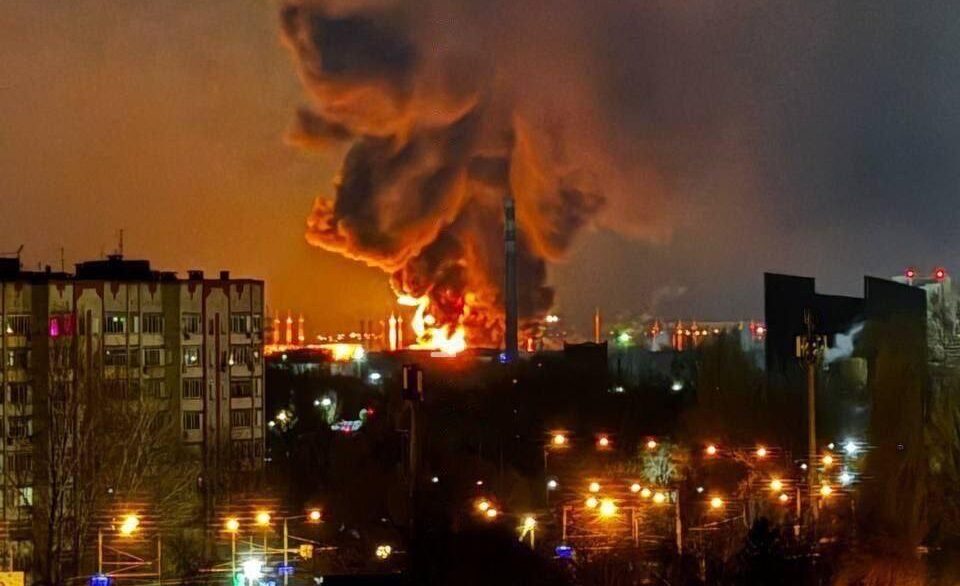The first two months of 2025 have witnessed an unprecedented series of drone strikes targeting Russia’s oil infrastructure, according to calculations conducted by ASTRA. These coordinated attacks appear strategically focused on facilities that play crucial roles in Russia’s energy supply chain and military logistics network.
The massive attacks can hit the Russian economy, which relies on oil exports, and expose Russia’s vulnerabilities ahead of potential negotiations.
The concentration of attacks in the Krasnodar Krai is particularly significant as this area serves as a vital energy corridor. The Caspian Pipeline Consortium’s “Kropotkinskaya“ pumping station, attacked most recently, is a critical link in Russia’s oil export infrastructure. The Ilsky and Afipsky refineries together process approximately 14 million tons of crude oil annually, while “Slavyansk-EKO“ represents one of the region’s newer processing facilities with expanded capacity since 2022.
Several targeted facilities have direct military significance. The “Kristall“ oil depot in Engels (Saratov Oblast) is a federal enterprise specifically designated for fuel storage supporting the Engels-2 strategic bomber airbase, home to Tu-95 and Tu-160 aircraft. The week-long fire following the January attack seriously disrupted operations and resulted in two firefighter fatalities. Local reports indicate that military fuel reserves were significantly depleted following the incident.
The attacks reveal particular vulnerabilities in Russia’s border regions. Belgorod Oblast’s “Yuttek“ oil depot has now been targeted twice in nine months. These facilities typically have less robust air defense systems compared to major refineries. The psychological impact on border communities has been substantial, with residents reporting increased anxiety about living near potential targets.
The attacks demonstrate sophisticated drone capabilities. Multiple types of UAVs appear to have been employed, ranging from modified commercial models to more advanced military-grade systems. Several attacks occurred simultaneously or in waves, indicating coordinated planning.
Russian defensive responses have shown mixed effectiveness. Despite Ministry of Defense claims about intercepted drones, the success rate of these strikes suggests significant gaps in air defense coverage due to Russia’s vast territory and limited air defense capabilities.
Related:
- TWZ: Ukraine knocks out Russia’s newest S-350 Vityaz in Donetsk, exposing gaps in Kremlin’s air defenses
- Forbes: Ukraine wipes out two Russian drone operators with HIMARS, borrowing US Afghan tactics
- Zelenskyy rejects to recognize US-Russia talks in Saudi Arabia excluding Ukraine
- UK engineers turn Soviet R-73 missiles into Ukraine’s new Gravehawk air defense




